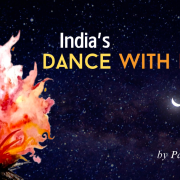The influence of The X-Files which roughly aired from 1993 to 2018 (with the reboot occurring in Seasons 10 and Season 11 respectively) is uncontested, to say the least. It’s the show with no introduction, the show that popularised internet fandom. This show – following two FBI agents’ investigations into the peculiar – revolutionised TV’s potential for grandiose storylines, especially when it comes to the sci-fi genre. Its overlap between procedural and the monster-of-the-week format felt fresh to audiences in the midst of other outings at the time, surely influencing the trajectory of that aforementioned hybrid genre. While it is definitely influenced by earlier outings such as Twin Peaks, The X-Files was a crisp and mainstream worldwide hit – even countries that had limited access to foreign TV were privy to it. It was a cultural piece too that reflected the changing tides in the American canon, utilising horror and science fiction to reflect cultural anxieties… sometimes in a pretty absurd way as well.
The two main characters were the centrepiece of the show and they are mainly what kept the audience (me also) glued to the screen. After all, when the plot falls apart (which it does sometimes), the characters are what people stay for. Scully and Mulder are both interesting (and likeable) characters that reflect the main two themes of faith and science; themes that inarguably carry the show. The characters also reflect the nuance within the themes through the two characters’ often decent writing. It also quite helps that the two characters have a chemistry that is undeniable. However, back to absurdity within those themes.
The show really shines when it addresses its own campiness and ridiculousness. Episodes that lean into this include (but are not limited to) the Cops crossover X-Cops (Season 7, Episode 12) and Jose Chung’s from Outer Space (Season 3, Episode 20). So much of the show is borderline absurd, and when it takes a complete or half-self-aware route, it’s a clever way to address this part of it. It is in this way that the show does not completely throw off the tone if it were to take that same self-aware route consistently – as it tends to traditionally opt for a more serious tone with some quips thrown in here and there. However, most of the time when we talk about the underlying aliens sub-plot that is revisited throughout the seasons, it’s just more a head-scratching type of ridiculous than a ha-ha-isn’t-this-hilarious type of absurd. It just descends into chaos.
The problem with the aliens’ subplot in The X-Files represents its issues as a cultural piece as well. As the agents try to uncover this supposed government-cover-up-not-anymore!?-cover-up-oh-no-still-cover-up-what-is-happening storyline throughout the seasons, the more the show descends into frustratingly confusing canon rather than insightful plot development. It also arguably propels this notion of belief in large-scale conspiracies without any evidence culture. While we do see the aliens in the show, the believability of why they are there, and what is happening is often not backed by real evidence or backstory in the show’s context.
Mulder’s biggest strength and weakness as a character is his open-mindedness to the fantastical, but these often include assumptions that do not have any real type of concrete basis (which is why we have Scully but even then the plot isn’t enough for her to counter his sweeping plot-related claims). Actually, what tends to happen with these alien-related episodes is that someone is in danger (usually Mulder or Scully) and then the episode becomes about that; abandoning the mission of taking down the government/aliens (OR BOTH?) or unravelling the conspiracy at least. While it would arguably sabotage the whole formula of the show if they were just to say “This is what’s really happening” where it would feel more natural in the plot (Season 5/6 for example); this inability to tell a clearly motivated conspiracy mirrors very much the same type of discourse we see online by many real-life conspiracy theorists on the internet.
While The X-Files is not to blame for the rise of conspiracy theorists that are not so harmless, it perhaps made it more pronounced considering the time it came out too. While its questioning of American governmental practices was ground-breaking at the time, sometimes it just felt not thoughtfully written (especially in the aliens’ subplot); mirroring a culture of paranoia and face-value belief. However, it is of note that when the show tackles corruption well, it does feel insightful. I believe that they do address their own positionality in the culture in the Season 10 and 11 reboots, and that is definitely the smart thing to do as a showrunner (11 seasons of a show that could have arguably concluded way earlier though…).
While The X-Files definitely had those episodes that tackled the fear of digitalisation, perhaps the episodes that tackled the fear of the other were the most troubling. I mean we can talk about how aliens mirror that fear in a way, but there are ones that have just straight-up xenophobic undertones. I mean it’s not unlike the ’90s and 00’s Hollywood, but as we do address a nostalgic relic that is bound to stir up very strong feelings in some people, we have to address this too because it is an inextricable part of it. There are episodes that come off quite obviously wrong like Babylon (Season 10, Episode 5), but there are ones that are just wow. Teso Dos Bichos (Season 3, Episode 18) is not only an infamously hated episode by literally everyone involved in it, but it also mishandles Native American culture (not the first time in the show) and represents it as a mystical destructive force. Teliko (Season 4, Episode 3) is perhaps one of the worst contenders here, tackling African immigration about as well as you’d expect a white-majority writing team would in the 90s.
The thing is about the show is that I don’t think the intention behind these stories was bad per se: perhaps a mix of slips in writing, cultural hegemony from the time, and a Chris Carter-type of pompous voiceover scene vibe that feels a little unnecessary. I think it’s important that the more we like something, the more we are critical towards it and reflexive towards it (especially if it’s something we feel nostalgic about). We look at texts as a product of their time and note that it is a sign that as a culture we can hopefully learn and progress. Anyways, I do love The X-Files and it does so many things right as well (some of the best X-Files episodes are the best episodes of television, period). However, we must always remember at the end of the day that science fiction is also just that – fiction.
Written By: Mayra Nassef
Edited By: Nimrat Kaur
Visuals By: Preslava Ploshtakova


